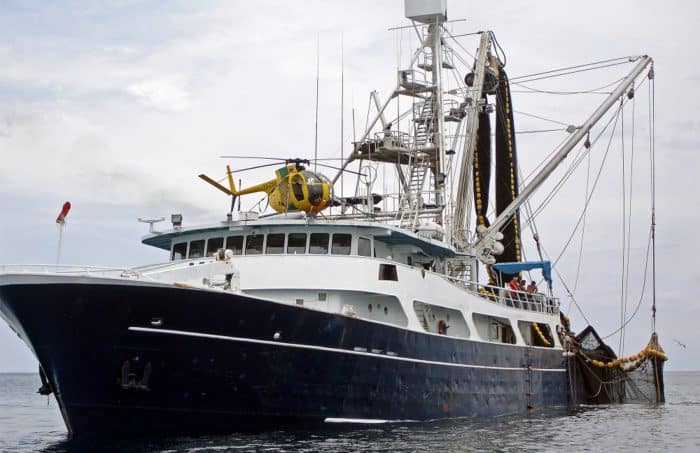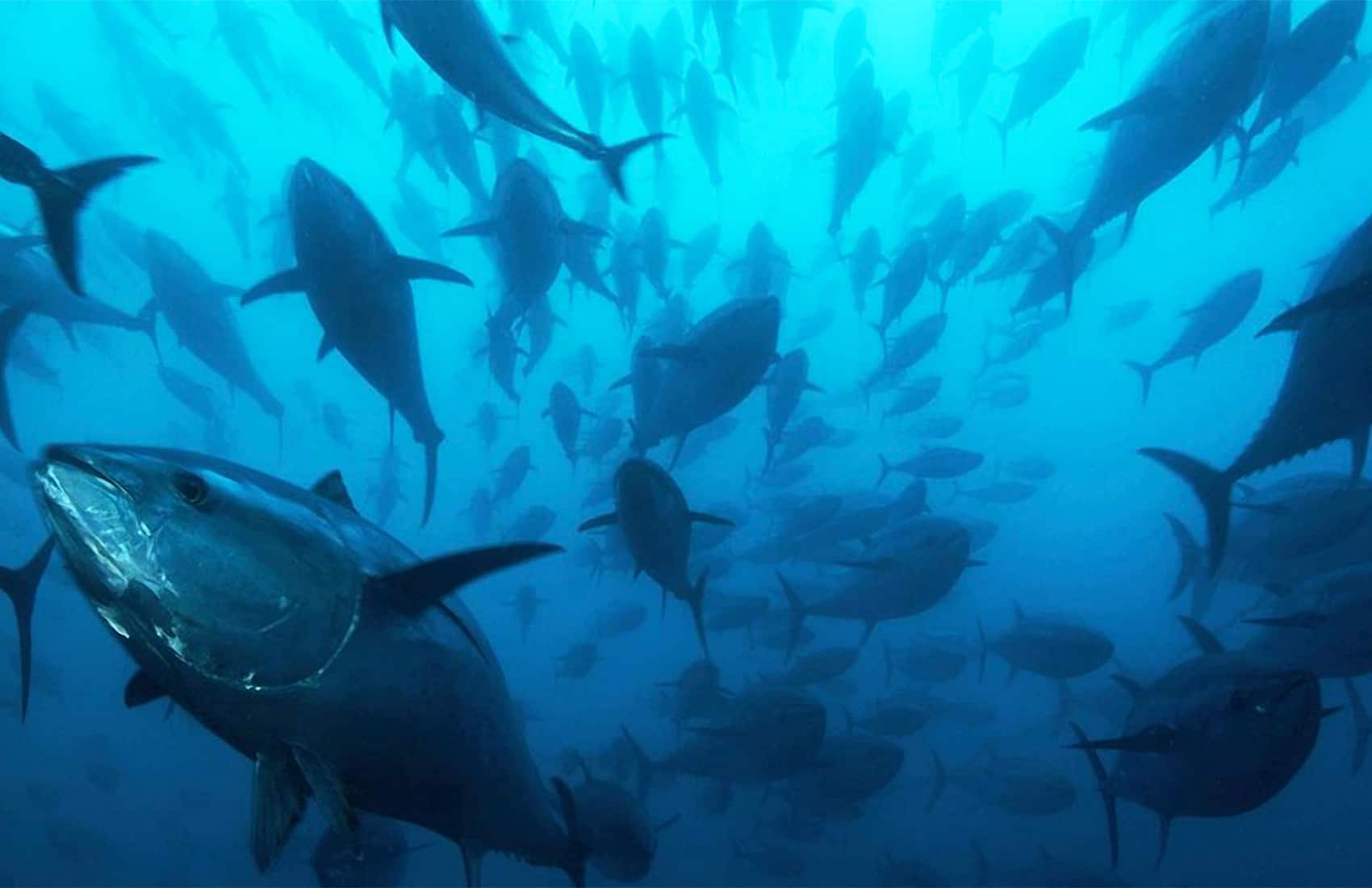Costa Rica’s laws allow international fleets to capture 95 percent of the tuna caught within Costa Rican waters, researchers from the National University (UNA) and the non-government organization MarViva announced.
The figure is part of the research for a new book called “Characteristics of Tuna Fishing in Costa Rica” that researchers presented at a press conference on Wednesday.
The commercial value of tuna here is of some $62 million per year. Of this total, Costa Rica receives only $904,000 in licensing fees, the report states.
That means the country receives some $19 for each metric ton of tuna, which can reach a market price of some $2,000.
Official data from the Costa Rican Fisheries Institute (INCOPESCA) say that the estimated total catch of tuna here is 25,000 metric tons per year. According to the researchers’ report, approximately 5,000 tons stay here for local distribution.
UNA researcher Olman Segura said that this situation “forces Costa Rica to import tuna every year, despite having plenty inside its territory.”
The report notes that international vessels are using industrial purse seines with lengths of up to two kilometers (some 1.2 miles) and more than 200 meters (656 feet) in depth. The local fleet, however, is still using artisanal fishing techniques.
“Local artisanal fishermen catch in a year what these vessels can catch in just one trip,” the report states.
Moreover, industrial fleets don’t even process the tuna here. They take their catch to processing plants located primarily in Colombia, Ecuador, El Salvador, Guatemala and Venezuela.
Recommendations
The study urges the government to amend fishing laws in order to boost income for the country. They also recommend improved training for artisanal tuna fishers and the drafting of measures to promote tuna processing at local plants.
MARVIVA Director Jorge Jiménez Ramón said at the presentation that Costa Rica is giving away its fishing wealth.
“Instead of fostering a local fleet that can fish in a responsible way, we are allowing others to take our fish away from the country,” he said.
Researchers also recommend updating license fees using a tonnage-based collection system as established by the Inter-American Tropical Tuna Commission. Updated fees, according to current standards, would provide an estimated annual revenue of up to $2.7 million, the report says.
Segura said that one of the main objectives of the study is to boost job creation in coastal areas, which include some of the regions of Costa Rica with the fewest job opportunities.
“We also aim to strengthen the work of INCOPESCA so they can improve their controls, especially over illegal fishing,” he said.
New model
The report came just days after the Executive Branch announced it is drafting a decree to amend regulations on tuna fishing in Costa Rica.
INCOPESCA Executive President Gustavo Meneses said on March 7 that the new decree will outline the guidelines for a new tuna license-granting model based on scientific and technical criteria.
Meneses said they will also update fishing license fees according to current market standards.
“The new model seeks to rationalize the impact of purse seine tuna fishery,” he said, adding that the plan will allow grant fishermen “a better chance of improving their catch, without compromising environmental balance.”







